Angles & Demons Read online
Page 9
"You mean terrorism."
"Plainly."
"But the Illuminati were not terrorists."
"Tell that to Leonardo Vetra."
Langdon felt a pang of truth in the statement. Leonardo Vetra had indeed been branded with the Illuminati symbol. Where had it come from? The sacred brand seemed too difficult a hoax for someone trying to cover his tracks by casting suspicion elsewhere. There had to be another explanation.
Again, Langdon forced himself to consider the implausible. If the Illuminati were still active, and if they stole the antimatter, what would be their intention? What would be their target? The answer furnished by his brain was instantaneous. Langdon dismissed it just as fast. True, the Illuminati had an obvious enemy, but a wide-scale terrorist attack against that enemy was inconceivable. It was entirely out of character. Yes, the Illuminati had killed people, but individuals, carefully conscripted targets. Mass destruction was somehow heavy-handed. Langdon paused. Then again, he thought, there would be a rather majestic eloquence to it—antimatter, the ultimate scientific achievement, being used to vaporize—
He refused to accept the preposterous thought. "There is," he said suddenly, "a logical explanation other than terrorism."
Kohler stared, obviously waiting.
Langdon tried to sort out the thought. The Illuminati had always wielded tremendous power through financial means. They controlled banks. They owned gold bullion. They were even rumored to possess the single most valuable gem on earth—the Illuminati Diamond, a flawless diamond of enormous proportions. "Money," Langdon said. "The antimatter could have been stolen for financial gain."
Kohler looked incredulous. "Financial gain? Where does one sell a droplet of antimatter?"
"Not the specimen," Langdon countered. "The technology. Antimatter technology must be worth a mint. Maybe someone stole the specimen to do analysis and R and D."
"Industrial espionage? But that canister has twenty-four hours before the batteries die. The researchers would blow themselves up before they learned anything at all."
"They could recharge it before it explodes. They could build a compatible recharging podium like the ones here at CERN."
"In twenty-four hours?" Kohler challenged. "Even if they stole the schematics, a recharger like that would take months to engineer, not hours!"
"He’s right." Vittoria’s voice was frail.
Both men turned. Vittoria was moving toward them, her gait as tremulous as her words.
"He’s right. Nobody could reverse engineer a recharger in time. The interface alone would take weeks. Flux filters, servo-coils, power conditioning alloys, all calibrated to the specific energy grade of the locale."
Langdon frowned. The point was taken. An antimatter trap was not something one could simply plug into a wall socket. Once removed from CERN, the canister was on a one-way, twenty-four-hour trip to oblivion.
Which left only one, very disturbing, conclusion.
"We need to call Interpol," Vittoria said. Even to herself, her voice sounded distant. "We need to call the proper authorities. Immediately."
Kohler shook his head. "Absolutely not."
The words stunned her. "No? What do you mean?"
"You and your father have put me in a very difficult position here."
"Director, we need help. We need to find that trap and get it back here before someone gets hurt. We have a responsibility!"
"We have a responsibility to think," Kohler said, his tone hardening. "This situation could have very, very serious repercussions for CERN."
"You’re worried about CERN’s reputation? Do you know what that canister could do to an urban area? It has a blast radius of a half mile! Nine city blocks!"
"Perhaps you and your father should have considered that before you created the specimen."
Vittoria felt like she’d been stabbed. "But . . . we took every precaution."
"Apparently, it was not enough."
"But nobody knew about the antimatter." She realized, of course, it was an absurd argument. Of course somebody knew. Someone had found out.
Vittoria had told no one. That left only two explanations. Either her father had taken someone into his confidence without telling her, which made no sense because it was her father who had sworn them both to secrecy, or she and her father had been monitored. The cell phone maybe? She knew they had spoken a few times while Vittoria was traveling. Had they said too much? It was possible. There was also their E-mail. But they had been discreet, hadn’t they? CERN’s security system? Had they been monitored somehow without their knowledge? She knew none of that mattered anymore. What was done, was done. My father is dead.
The thought spurred her to action. She pulled her cell phone from her shorts pocket.
Kohler accelerated toward her, coughing violently, eyes flashing anger. "Who . . . are you calling?"
"CERN’s switchboard. They can connect us to Interpol."
"Think!" Kohler choked, screeching to a halt in front of her. "Are you really so naïve? That canister could be anywhere in the world by now. No intelligence agency on earth could possibly mobilize to find it in time."
"So we do nothing?" Vittoria felt compunction challenging a man in such frail health, but the director was so far out of line she didn’t even know him anymore.
"We do what is smart," Kohler said. "We don’t risk CERN’s reputation by involving authorities who cannot help anyway. Not yet. Not without thinking."
Vittoria knew there was logic somewhere in Kohler’s argument, but she also knew that logic, by definition, was bereft of moral responsibility. Her father had lived for moral responsibility—careful science, accountability, faith in man’s inherent goodness. Vittoria believed in those things too, but she saw them in terms of karma. Turning away from Kohler, she snapped open her phone.
"You can’t do that," he said.
"Just try and stop me."
Kohler did not move.
An instant later, Vittoria realized why. This far underground, her cell phone had no dial tone.
Fuming, she headed for the elevator.
26
The Hassassin stood at the end of the stone tunnel. His torch still burned bright, the smoke mixing with the smell of moss and stale air. Silence surrounded him. The iron door blocking his way looked as old as the tunnel itself, rusted but still holding strong. He waited in the darkness, trusting.
It was almost time.
Janus had promised someone on the inside would open the door. The Hassassin marveled at the betrayal. He would have waited all night at that door to carry out his task, but he sensed it would not be necessary. He was working for determined men.
Minutes later, exactly at the appointed hour, there was a loud clank of heavy keys on the other side of the door. Metal scraped on metal as multiple locks disengaged. One by one, three huge deadbolts ground open. The locks creaked as if they had not been used in centuries. Finally all three were open.
Then there was silence.
The Hassassin waited patiently, five minutes, exactly as he had been told. Then, with electricity in his blood, he pushed. The great door swung open.
27
"Vittoria, I will not allow it!" Kohler’s breath was labored and getting worse as the Haz-Mat elevator ascended.
Vittoria blocked him out. She craved sanctuary, something familiar in this place that no longer felt like home. She knew it was not to be. Right now, she had to swallow the pain and act. Get to a phone.
Robert Langdon was beside her, silent as usual. Vittoria had given up wondering who the man was. A specialist? Could Kohler be any less specific? Mr. Langdon can help us find your father’s killer. Langdon was being no help at all. His warmth and kindness seemed genuine, but he was clearly hiding something. They both were.
Kohler was at her again. "As director of CERN, I have a responsibility to the future of science. If you amplify this into an international incident and CERN suffers—"
"Future of science?" Vittoria turned on him
. "Do you really plan to escape accountability by never admitting this antimatter came from CERN? Do you plan to ignore the people’s lives we’ve put in danger?"
"Not we," Kohler countered. "You. You and your father."
Vittoria looked away.
"And as far as endangering lives," Kohler said, "life is exactly what this is about. You know antimatter technology has enormous implications for life on this planet. If CERN goes bankrupt, destroyed by scandal, everybody loses. Man’s future is in the hands of places like CERN, scientists like you and your father, working to solve tomorrow’s problems."
Vittoria had heard Kohler’s Science-as-God lecture before, and she never bought it. Science itself caused half the problems it was trying to solve. "Progress" was Mother Earth’s ultimate malignancy.
"Scientific advancement carries risk," Kohler argued. "It always has. Space programs, genetic research, medicine—they all make mistakes. Science needs to survive its own blunders, at any cost. For everyone’s sake."
Vittoria was amazed at Kohler’s ability to weigh moral issues with scientific detachment. His intellect seemed to be the product of an icy divorce from his inner spirit. "You think CERN is so critical to the earth’s future that we should be immune from moral responsibility?"
"Do not argue morals with me. You crossed a line when you made that specimen, and you have put this entire facility at risk. I’m trying to protect not only the jobs of the three thousand scientists who work here, but also your father’s reputation. Think about him. A man like your father does not deserve to be remembered as the creator of a weapon of mass destruction."
Vittoria felt his spear hit home. I am the one who convinced my father to create that specimen. This is my fault!
When the door opened, Kohler was still talking. Vittoria stepped out of the elevator, pulled out her phone, and tried again.
Still no dial tone. Damn! She headed for the door.
"Vittoria, stop." The director sounded asthmatic now, as he accelerated after her. "Slow down. We need to talk."
"Basta di parlare!"
"Think of your father," Kohler urged. "What would he do?"
She kept going.
"Vittoria, I haven’t been totally honest with you."
Vittoria felt her legs slow.
"I don’t know what I was thinking," Kohler said. "I was just trying to protect you. Just tell me what you want. We need to work together here."
Vittoria came to a full stop halfway across the lab, but she did not turn. "I want to find the antimatter. And I want to know who killed my father." She waited.
Kohler sighed. "Vittoria, we already know who killed your father. I’m sorry."
Now Vittoria turned. "You what?"
"I didn’t know how to tell you. It’s a difficult—"
"You know who killed my father?"
"We have a very good idea, yes. The killer left somewhat of a calling card. That’s the reason I called Mr. Langdon. The group claiming responsibility is his specialty."
"The group? A terrorist group?"
"Vittoria, they stole a quarter gram of antimatter."
Vittoria looked at Robert Langdon standing there across the room. Everything began falling into place. That explains some of the secrecy. She was amazed it hadn’t occurred to her earlier. Kohler had called the authorities after all. The authorities. Now it seemed obvious. Robert Langdon was American, clean-cut, conservative, obviously very sharp. Who else could it be? Vittoria should have guessed from the start. She felt a newfound hope as she turned to him.
"Mr. Langdon, I want to know who killed my father. And I want to know if your agency can find the antimatter."
Langdon looked flustered. "My agency?"
"You’re with U.S. Intelligence, I assume."
"Actually . . . no."
Kohler intervened. "Mr. Langdon is a professor of art history at Harvard University."
Vittoria felt like she had been doused with ice water. "An art teacher?"
"He is a specialist in cult symbology." Kohler sighed. "Vittoria, we believe your father was killed by a satanic cult."
Vittoria heard the words in her mind, but she was unable to process them. A satanic cult.
"The group claiming responsibility calls themselves the Illuminati."
Vittoria looked at Kohler and then at Langdon, wondering if this was some kind of perverse joke. "The Illuminati?" she demanded. "As in the Bavarian Illuminati?"
Kohler looked stunned. "You’ve heard of them?"
Vittoria felt the tears of frustration welling right below the surface. "Bavarian Illuminati: New World Order. Steve Jackson computer games. Half the techies here play it on the Internet." Her voice cracked. "But I don’t understand . . ."
Kohler shot Langdon a confused look.
Langdon nodded. "Popular game. Ancient brotherhood takes over the world. Semihistorical. I didn’t know it was in Europe too."
Vittoria was bewildered. "What are you talking about? The Illuminati? It’s a computer game!"
"Vittoria," Kohler said, "the Illuminati is the group claiming responsibility for your father’s death."
Vittoria mustered every bit of courage she could find to fight the tears. She forced herself to hold on and assess the situation logically. But the harder she focused, the less she understood. Her father had been murdered. CERN had suffered a major breach of security. There was a bomb counting down somewhere that she was responsible for. And the director had nominated an art teacher to help them find a mythical fraternity of Satanists.
Vittoria felt suddenly all alone. She turned to go, but Kohler cut her off. He reached for something in his pocket. He produced a crumpled piece of fax paper and handed it to her.
Vittoria swayed in horror as her eyes hit the image.
"They branded him," Kohler said. "They branded his goddamn chest."
28
Secretary Sylvie Baudeloque was now in a panic. She paced outside the director’s empty office. Where the hell is he? What do I do?
It had been a bizarre day. Of course, any day working for Maximilian Kohler had the potential to be strange, but Kohler had been in rare form today.
"Find me Leonardo Vetra!" he had demanded when Sylvie arrived this morning.
Dutifully, Sylvie paged, phoned, and E-mailed Leonardo Vetra.
Nothing.
So Kohler had left in a huff, apparently to go find Vetra himself. When he rolled back in a few hours later, Kohler looked decidedly not well . . . not that he ever actually looked well, but he looked worse than usual. He locked himself in his office, and she could hear him on his modem, his phone, faxing, talking. Then Kohler rolled out again. He hadn’t been back since.
Sylvie had decided to ignore the antics as yet another Kohlerian melodrama, but she began to get concerned when Kohler failed to return at the proper time for his daily injections; the director’s physical condition required regular treatment, and when he decided to push his luck, the results were never pretty—respiratory shock, coughing fits, and a mad dash by the infirmary personnel. Sometimes Sylvie thought Maximilian Kohler had a death wish.
She considered paging him to remind him, but she’d learned charity was something Kohlers’s pride despised. Last week, he had become so enraged with a visiting scientist who had shown him undue pity that Kohler clambered to his feet and threw a clipboard at the man’s head. King Kohler could be surprisingly agile when he was pissé.
At the moment, however, Sylvie’s concern for the director’s health was taking a back burner . . . replaced by a much more pressing dilemma. The CERN switchboard had phoned five minutes ago in a frenzy to say they had an urgent call for the director.
"He’s not available," Sylvie had said.
Then the CERN operator told her who was calling.
Sylvie half laughed aloud. "You’re kidding, right?" She listened, and her face clouded with disbelief. "And your caller ID confirms—" Sylvie was frowning. "I see. Okay. Can you ask what the—" She sighed. "No. That’s fine. Tel
l him to hold. I’ll locate the director right away. Yes, I understand. I’ll hurry."
But Sylvie had not been able to find the director. She had called his cell line three times and each time gotten the same message: "The mobile customer you are trying to reach is out of range." Out of range? How far could he go? So Sylvie had dialed Kohler’s beeper. Twice. No response. Most unlike him. She’d even E-mailed his mobile computer. Nothing. It was like the man had disappeared off the face of the earth.
So what do I do? she now wondered.
Short of searching CERN’s entire complex herself, Sylvie knew there was only one other way to get the director’s attention. He would not be pleased, but the man on the phone was not someone the director should keep waiting. Nor did it sound like the caller was in any mood to be told the director was unavailable.
Startled with her own boldness, Sylvie made her decision. She walked into Kohler’s office and went to the metal box on his wall behind his desk. She opened the cover, stared at the controls, and found the correct button.
Then she took a deep breath and grabbed the microphone.
29
Vittoria did not remember how they had gotten to the main elevator, but they were there. Ascending. Kohler was behind her, his breathing labored now. Langdon’s concerned gaze passed through her like a ghost. He had taken the fax from her hand and slipped it in his jacket pocket away from her sight, but the image was still burned into her memory.
As the elevator climbed, Vittoria’s world swirled into darkness. Papa! In her mind she reached for him. For just a moment, in the oasis of her memory, Vittoria was with him. She was nine years old, rolling down hills of edelweiss flowers, the Swiss sky spinning overhead.
Papa! Papa!
Leonardo Vetra was laughing beside her, beaming. "What is it, angel?"
"Papa!" she giggled, nuzzling close to him. "Ask me what’s the matter!"
"But you look happy, sweetie. Why would I ask you what’s the matter?"
"Just ask me."

 Angels & Demons
Angels & Demons Origin
Origin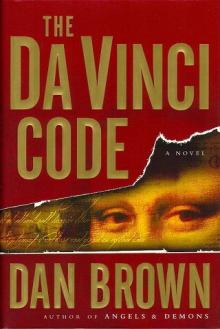 The Da Vinci Code
The Da Vinci Code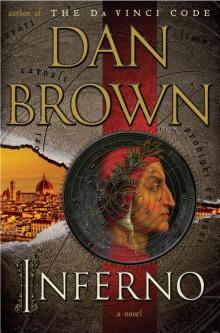 Inferno
Inferno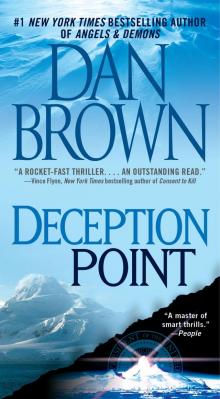 Deception Point
Deception Point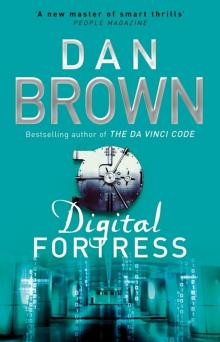 Digital Fortress
Digital Fortress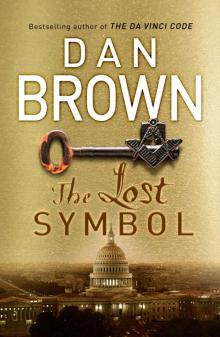 The Lost Symbol
The Lost Symbol Origin: (Robert Langdon Book 5)
Origin: (Robert Langdon Book 5) Angles & Demons
Angles & Demons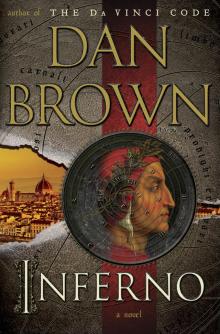 Inferno: A Novel
Inferno: A Novel Angels & Demons rl-1
Angels & Demons rl-1 The Great Expectations School
The Great Expectations School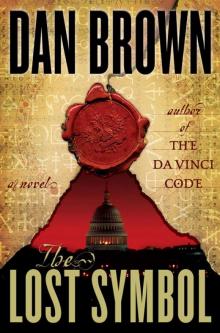 The Lost Symbol rl-3
The Lost Symbol rl-3 Angels and Demons
Angels and Demons Inferno: Special Illustrated Edition: Featuring Robert Langdon
Inferno: Special Illustrated Edition: Featuring Robert Langdon